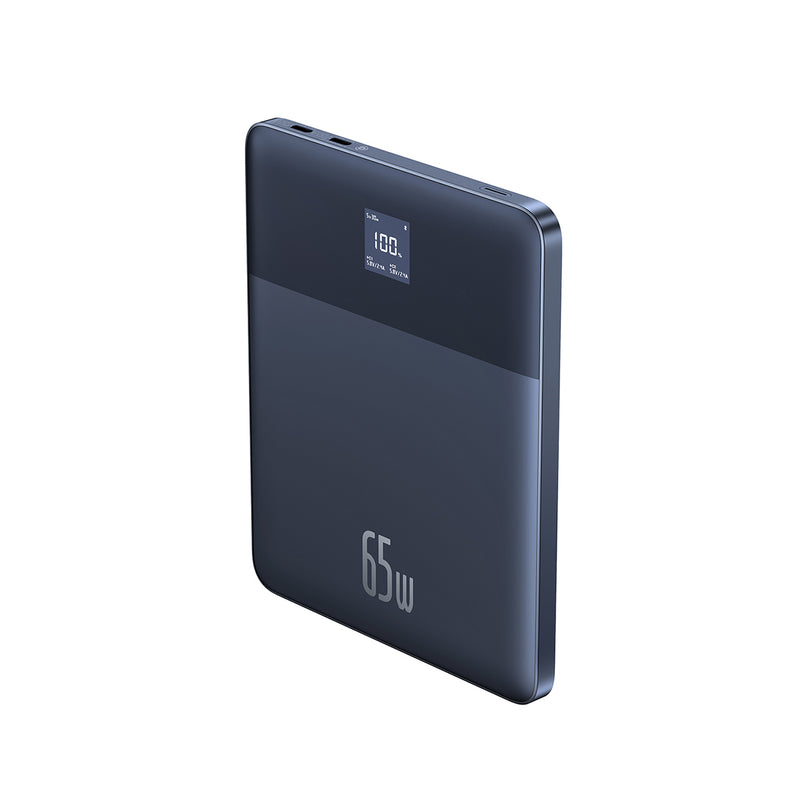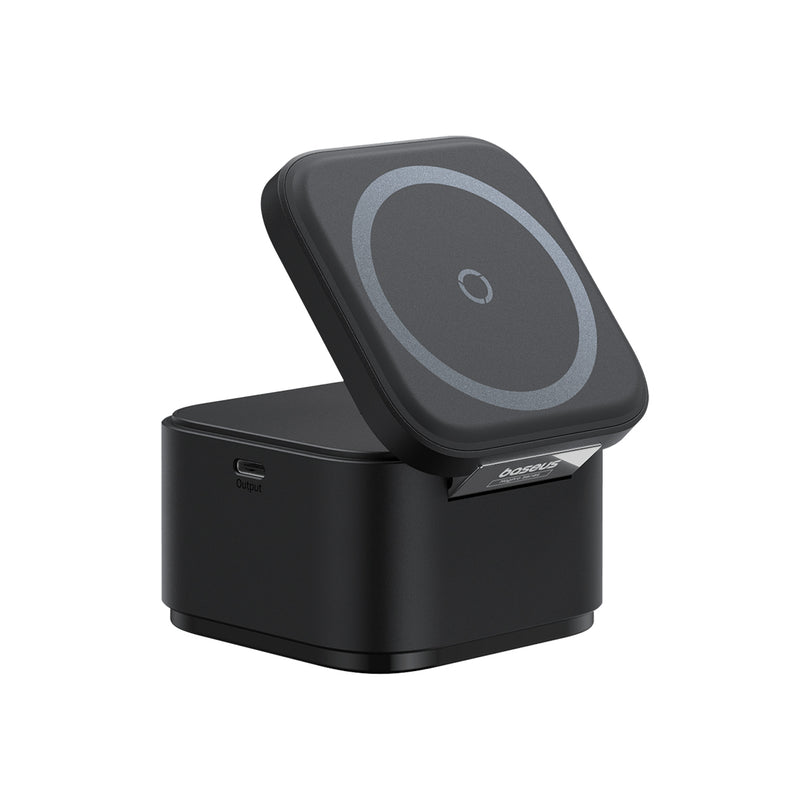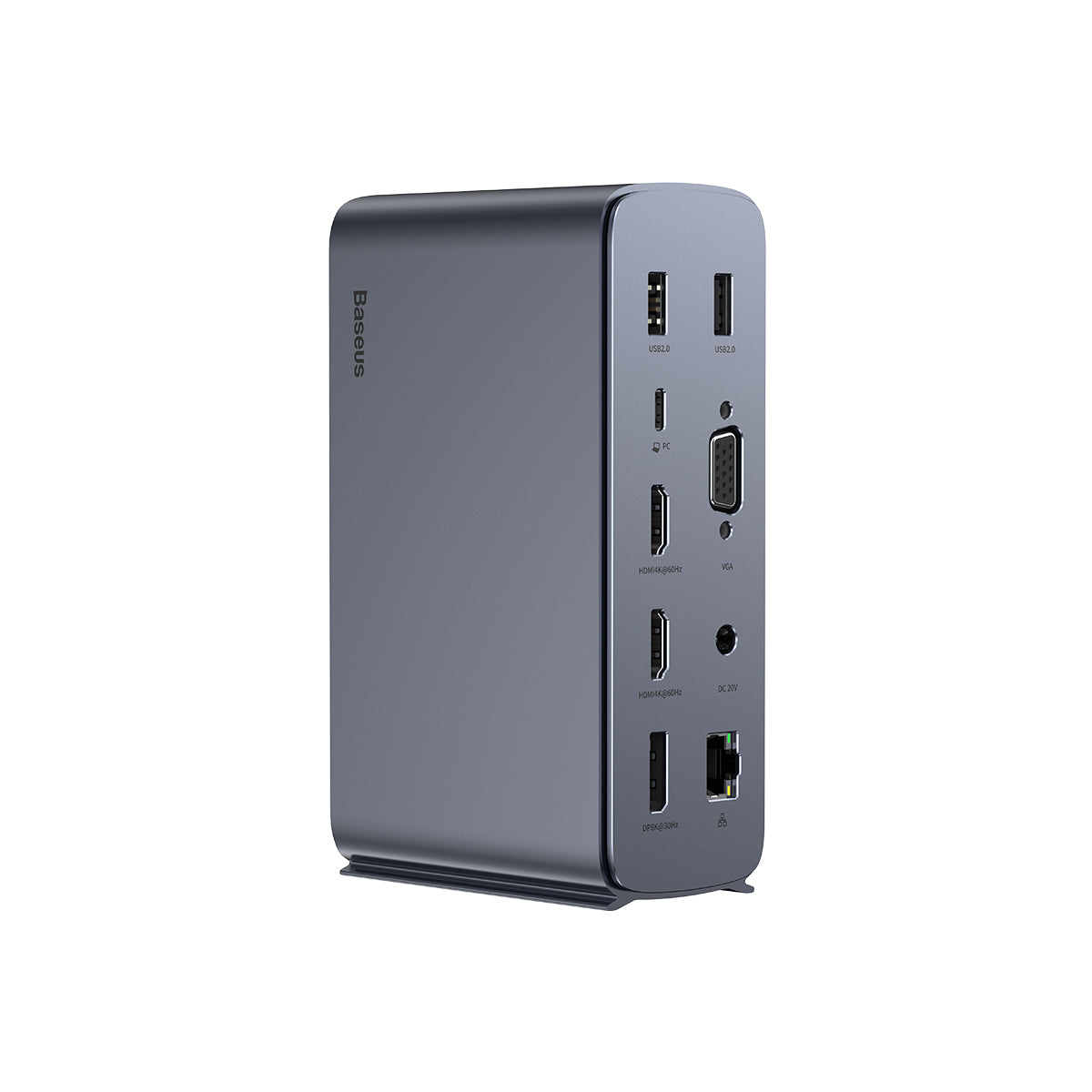Working remotely has long surpassed the realm of possibility and is now a normal part of how many people earn a living. Today, 92 million people in the United States have the opportunity to work remotely. A survey showed that 58% of people are able to work remotely part-time, and 35% are able to do so full-time.
If you work remotely at all, you need a setup that is conducive to it. Having a docking station for your laptop can help you do it comfortably and conveniently.
These tips will help you when you're looking into finding the best laptop docking station that your money can buy.
Make Sure It's Compatible
The best docking station for you is one that is compatible with the type of laptop you use. Consider the size and dimensions of your laptop, in addition to the model. The last thing you want to do is select a dock that is too big or too small for the laptop that you use.
Compatibility is the biggest deal breaker and can prevent you from buying a docking station even if it's high-quality. There are several third-party options that go with plenty of laptop models and sizes.
Your Use of the Docking Station
Consider how you use your computer and it'll help when you're choosing a docking station for a laptop. Some things you'll need to consider include:
- The height and angle that you like to use your laptop
- The size and height of your desk
- Whether you typically use your laptop at home or on the go
- How much your laptop tends to overheat
- Your preferred typing position
Understanding these factors will give you the chance to find the right fit for any docking station that you'd like to buy.
The Number of Ports You Need
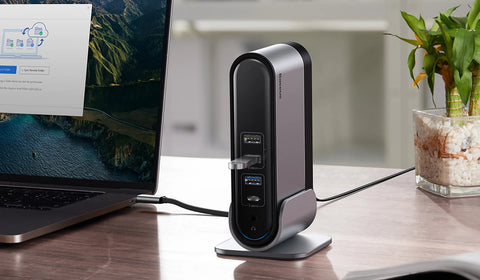
Consider the number of ports that come with the hardware, especially if it's a USB C docking station. This dictates how many devices you can use and what types of devices. Some docking stations have as many as 17 ports of all different types.
These different ports allow you to put your laptop into mirror mode or extended mode. The more ports you have, the more information you can relay.
Consider the Mobility
You'll need to also choose a docking station that is easily mobile. Laptops today are getting increasingly lighter, so your docking station shouldn't be heavy, bulky, or cumbersome.
Look into the weight and size of the docking station, and make sure that you can easily stash it and put it away. You might have multiple monitors in your home office or may work in a computer lab or internet cafe. In these settings, you may need to be able to quickly plug and unplug your laptop from the docking station as you switch monitors.
The Types of Ports
It's not just about the number of ports – you must also consider the types. USB ports are the most common that you'll need. This might include USB C or USB 3.0.
Many people want to have High-Definition Multimedia Interface (HDMI) ports so that they can hook their laptop up to a TV, HD monitor, or other devices.
Some other ports that you may choose to look into include:
- Aux headphone ports
- DC 12 V ports
- VGA ports
- Ethernet ports
- Thunderbolt ports
Figuring out the types of ports that you need will help you choose the right hardware. This will dictate your workflow and makes it easier to set up the right station.
Your Power Options
There are a variety of power options that you'll have when you search for a docking station. This is one of the biggest preferences to consider and will dictate how you use your device.
Some of these docking stations work independently with their own power supply. Others will plug into the laptop and use that as a power supply by connecting through the USB or another port. You may also choose a docking station that plugs into an outlet for its power supply.
Factor in these power options so that you have a chance to operate your docking station in a way that works for you.
The Price Points
Of course, you need to figure out which docking station is best for your budget. A quality docking station might cost you about $120 or so. Others might cost you as low as $60 or so.
When you factor in price, consider how long you need this device. You might need your docking station to last for the foreseeable future, or it could be a stop-gap piece of hardware to hold you over until you purchase a pricier one. Study the different price points, shop around, and try to find a deal whenever possible.
You would do well to look for a docking station that is on sale or purchase from a company that has active discounts.
The Product Design
You can always tell if a piece of hardware is quality by studying the product design. Steer clear of any docking stations that are too old-school or rudimentary.
The docking station should be engineered in a way that makes the best use of its power. Taking shortcuts on craftsmanship means that you are likely to need a replacement sooner rather than later. Consider the size of the docking station as well to see how it fits your arrangement. You might choose a small docking station or one that is virtually the size of your laptop.
Brand Name and Recognition
Choose a docking station from a brand that you can put stock in. Brand recognition means a lot when you're looking for performance, craftsmanship, and liability. Check out some comparisons to see which brands consumers say are the cream of the crop.
Consider companies like Baseus, which offer any number of electronics. This is a company that not only sells laptop docking stations, but also everything from vacuum cleaners and power banks to earbuds and spare cords. Study your brand options so that you get the most from the purchase.
Look Into Customer Reviews
The reviews that people leave for the docking stations will also go a long way toward helping you decide. You can check reviews both from product journalists and customers who have bought and used the docking station.
Find a station that has plenty of reviews for it so that you can put some stock into the majority opinion. These reviews should include both a score and a qualitative assessment of the device. Many reviews today are in-depth, with video unboxing, photos, and live demonstrations. Select a device with a high average score and pay attention to those that are constantly recommended.
Your Audio and Video Needs
Always consider what you need in terms of multimedia. For instance, do you just need to mirror your screen on a spare monitor for general browsing, or are you an artist that needs to connect your laptop to high-def monitors?
You might need a laptop docking station dual monitor. Certain docking stations let you connect up to three monitors, and even four to use at a time.
Related article: How to Connect Two Monitors to a Laptop: A Brief Guide
Likewise, consider what quality of audio you need depending on the experience that you're trying to have with your laptop. This will let you know what specifications to look for with things like transfer speeds and the quality of the output.
Storage and Card Readers
One of the benefits of docking stations is that they can help you get more memory. Look into the storage card slots that come with the docking station so that you can expand the memory of your laptop.
This might include USB drives, SD cards, or other forms of external media. Make sure you read the specs to know how long it takes to load these devices so that you're not struggling with sluggish file transfers.
A Warranty or Protection Plan
Finally, make sure that your docking station has a warranty or protection plan. Many of these come with warranties from the manufacturer. You might also be able to add one from the retailer.
You'll appreciate having this level of protection with a device you'll use so frequently.
Find the Best Laptop Docking Station
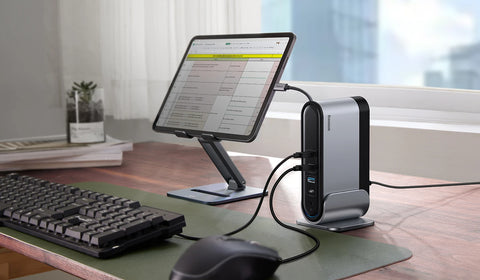
Looking for the best laptop docking station takes some diligence. But with this information, you shouldn't have too much trouble finding a fit.
Baseus is happy to help when you're looking for a docking station or a variety of other products. Take the time to contact us online or give us a call at +1-800-220-8056 to learn more.
 United States/English
United States/English



